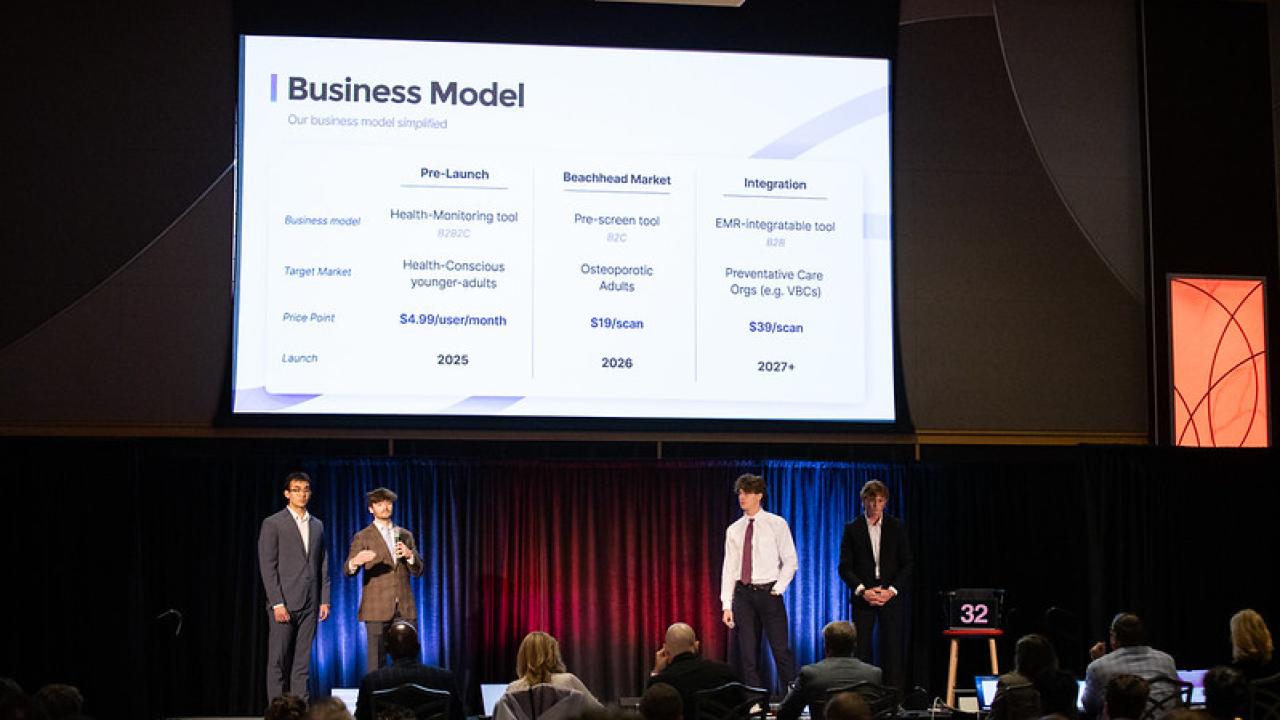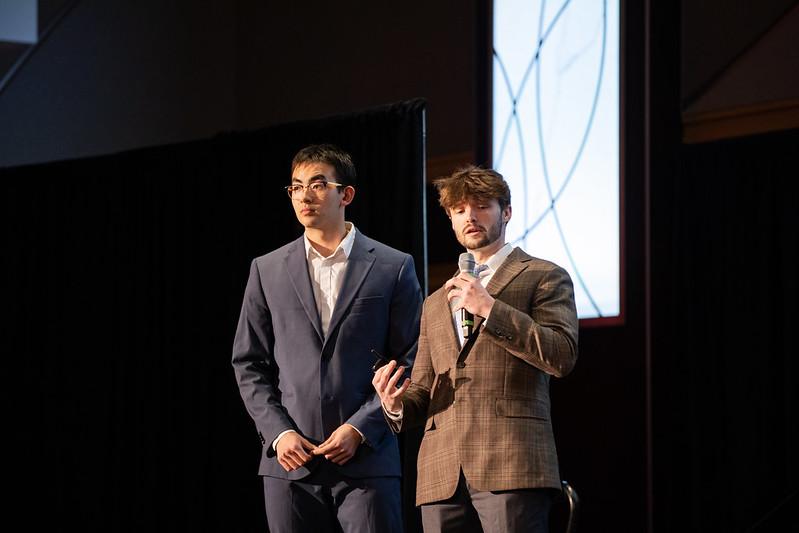“We’re now exploring how this can be used to screen for conditions such as osteoporosis or cardiovascular disease before symptoms even appear,” Reynolds said.
The team’s research proposal was selected for the CTSA SYNERGY Grant through Dartmouth and Dartmouth Hitchcock Medical Center. Kino is serving as a sponsor collaborator on the project, and the resulting pilot study is being conducted in part at Ohio State. The startup later received an additional $20,000 through Dartmouth’s digital health accelerator program, bringing the total support to $70,000.
The SYNERGY Grant is part of a federally supported program that provides pilot funding for early-stage research projects with the potential to improve human health through interdisciplinary collaboration and clinical application.
Tim Burdick, chief research information officer at Dartmouth Hitchcock, was an early supporter and now serves as an advisor to the Kino team. His interest helped shape the health-focused direction of the project.
Kino’s development has been supported by Ohio State’s entrepreneurial ecosystem. In addition to the President’s Buckeye Accelerator, the team advanced through Boost Camp and Boss Camp, gaining funding, mentorship and research space in the Physical Activity and Educational Services building.
There, clinical research is currently underway. Participants receive DEXA scans—a gold-standard imaging method used to assess body composition—and pair those scans with smartphone photos to help train Kino’s machine learning model. That model has already achieved an average error rate of 2 percent for men and 3 percent for women in its initial user group of college students and recent graduates.
The next goal is to expand the model’s accuracy across a broader range of ages, body types and demographics. Kino is also beginning outreach to fitness and wellness professionals—including personal trainers, gym owners and nutritionists—who may eventually use the tool with clients.
“We’re offering immediate value by giving gym members access to free DEXA scans as part of our research,” Reynolds said. “That builds trust now, and in the future, they’ll already be familiar with what Kino can do.”
Cheryl Turnbull, senior director of the Keenan Center for Entrepreneurship at Ohio State, said Kino’s success reflects the strength of the university’s innovation pipeline.
“Kino is a great example of what happens when you combine curiosity, grit and real-world support,” Turnbull said. “They’ve moved quickly and thoughtfully from idea to research-backed development, and it’s exciting to see their vision for preventative health take shape.”
Reynolds said Kino’s long-term goal is to make advanced body composition tools accessible, affordable and easy to use for anyone with a phone.
“We’re trying to help people take control of their health before problems start,” he said. “It’s about putting powerful tools in people’s hands—literally.”

